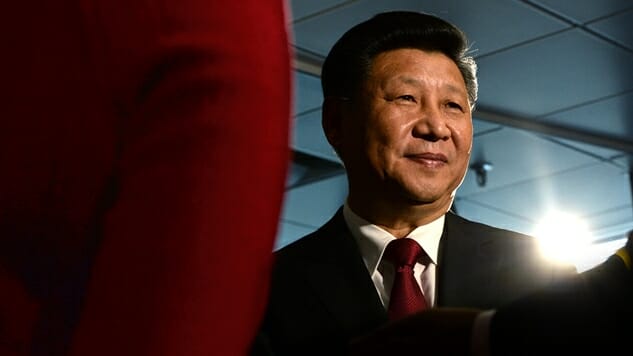The Chinese Government Is Rapidly Consolidating Its Media in Order to Control Their Domestic Message
Photo by WPA Pool/Getty
Chinese state-run news agency Xinhua recently announced plans to consolidate four existing state media companies—China Securities Journal, Economic Information Daily, Shanghai Securities News and Xinhua Publishing House—with a fifth soon-to-launch company, creating what is to be called the China Fortune Media Corporation Group.
Some reports have framed the news as relevant on a global scale. Business Insider, for instance, wrote “China wants more control over its story—specifically the story of its economy—being told around the world, in similar fashion to how RT acts to spread Russia’s viewpoint across the globe.”
But while the consolidation is undoubtedly about message control, Jonathan Hassid, an assistant professor at Iowa State, says the move is about domestic communications more than international. And, he added, it’s hardly surprising.
“The Chinese government has been pushing media consolidation for at least the last 15 years,” Hassid—also the author of Pressing Back: The Struggle for Control over China’s Journalists, which investigated journalistic resistance to government demands and censorship in China—explained, “the Chinese government wants to get these smaller players to consolidate because it’s easier to manage content.”
Hassid doesn’t mean “manage” in an administrative sense; content is controlled by the state in order to support and promote the Chinese Communist Party.
-

-

-

-

-

-

-

-

-

-

-

-

-

-

-

-

-

-

-

-

-

-

-

-

-

-

-

-

-

-

-

-

-

-

-

-

-

-

-

-








































